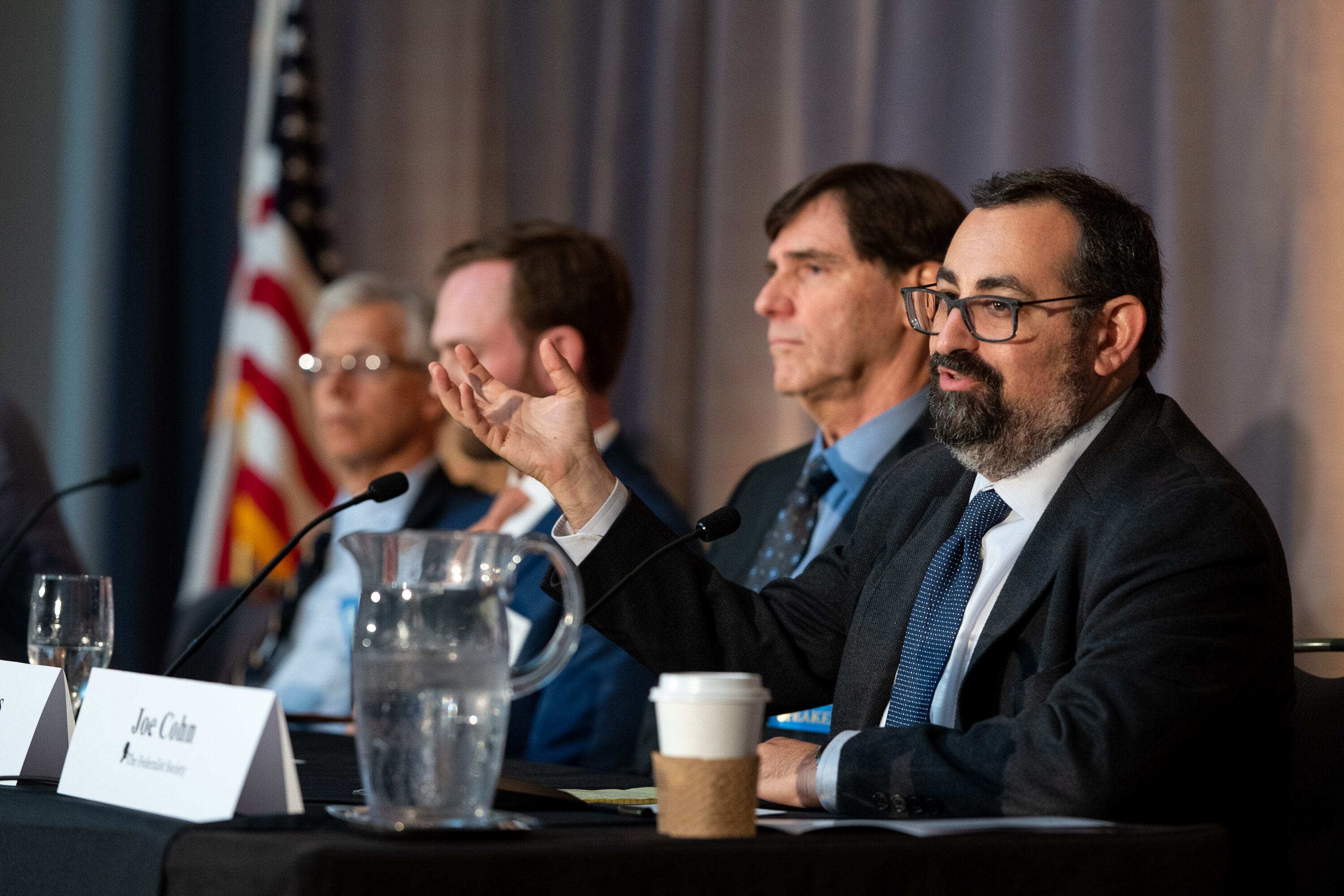From Critical Race Theory to diversity, equity and inclusion, more Southern states like Alabama and Florida are trying to push back against woke ideology at public universities.
But whether that means the government banning certain topics outright or administrators restructuring incentives, conservatives and free speech advocates are still debating the best approach to secure academic freedom on campus.
The Federalist Society for Law and Public Policy Studies recently held such a debate at its 2023 Freedom of Thought Conference, where four prominent thought leaders discussed "the role of states defending freedom of thought."
"Is there any more signal indication of the utter incompetence or the betrayal of the Republican party than the public universities in strongly red states?" asked Emory University emeritus professor Mark Bauerlein. "Any stronger signal of the failure of the conservative movement than higher education in the United States?"
Bauerlein, appointed to the New College of Florida board of trustees by Gov. Ron Desantis, argued that all too often, the policies and culture of college campuses in "comfortably red" states do not align with the state's values. He pointed to the general acceptance and implementation of DEI initiatives, which he said should be done away with nationwide.
"There are areas of discussion you simply don't touch unless you toe the party line," he said. "Political correctness has never, ever been worse than it is today."
Andrew Ferguson, Solicitor General Commonwealth of Virginia, advocated for a more active role for the government in providing oversight of public universities. He drew parallels between college administrators and the administrative state, both of which he said are unelected and unaccountable to anyone.
"The physician is not going to heal himself. He can't. He's too far gone," Ferguson said, referring to the state of public universities. "...If this isn't a way to achieve human flourishing, change it. And if they can't change themselves, change it from the outside. That's what we're electing people to do."
John Hasnas, professor of Business and executive director at Georgetown University, and Joe Cohn, legislative and policy director at the Foundation for Individual Rights in Education (FIRE), agreed that college campuses needed to be fixed when it comes to freedom of speech, but they argued for a more organic, internal solution rather than that of the state.
"The biggest problem that I deal with is that the universities consistently fail to live up to their own policies," Hasnas said.
He said the people who run colleges are generally well-meaning, but the system gets "corrupted" due to certain incentives.
"It's not that somebody's out there trying to corrupt the system; it's that people following their incentives end up doing things that produce a result that's completely at odds with the actual goal," he said.
If more faculty and staff at these schools fought back to protect their free speech rights and force the administration to follow its own policies, Hasnas said they would most likely prevail in any legal battle and spark a reversal of the perverse incentive structure.
"The only thing I can think of that would make the situation worse is if we got politicians involved," Hasnas said. "...We don't need outside enforcement; we have all the enforcement we need inside the system; we are just not brave enough to use it."
Cohn agreed, saying that giving the state more power to intervene on college campuses would be exchanging one group of constitutional issues for another. He said he didn't care whether Democrats or Republicans were the ones pushing for banning of policies or topics but that any ban on curriculum, like Florida's Stop WOKE Act and Alabama's proposed "divisive concepts" bill, was unconstitutional.
"In the tension between equality and free speech, you must allow free speech," Cohn said. "...What I'm concerned about is when the appropriations committee instead says 'If you teach what I don't want you to teach, then I'm not going to give you the money,' because you're not talking about whether or not Virginia can do it. If Virginia can do it, so can California and so can Alabama and so can every other state. And what ideas each state chooses to take off of the table in the strong-arming of the budget is going to be different."
To connect with the author of this story or to comment, email daniel.taylor@1819news.com.
Don't miss out! Subscribe to our newsletter and get our top stories every weekday morning.










